Everyone has a right to clean, quality transportation and to live free from the pollution transportation causes. This February 4, the Sierra Club joined labor leaders and economic justice activists across the nation in uplifting Transit Equity Day, a tribute to civil rights icon Rosa Parks and the ongoing work to ensure transit equity.
Now in its third year, Transit Equity Day is led by the Labor Network for Sustainability, in partnership with groups like the Sierra Club, Amalgamated Transit Union, the NAACP, and OPAL Environmental Justice.
Transportation is the leading source of climate-disrupting pollution in the nation. At the same time, the urban-housing shortage is increasing sprawl and causing longer commute times across the nation. People, particularly those in low-income communities, are forced to live farther and farther from their jobs, city centers and green spaces, which undermines economic mobility, health, and civic engagement.
We also know that people in low-income communities, while being limited in their access to city centers, are also often burdened with living next to polluting highways, causing them to suffer disportionately from a multitude of health issues.
Investing in transit that gets people to work, to school, to the doctor, to museums, and to green spaces is a key component of transitioning to a just and climate-friendly economy, offering lots of good, green union jobs along the way. When we invest in our public services and workers, we all benefit -- and so does the environment!
This year, Transit Equity Day was bigger than ever, with more than 30 actions in 14 states mobilizing thousands of people throughout the United States.
Here’s a look at the Sierra Club’s involvement in Transit Equity Day 2020:
In Maryland, county executives from St. Mary’s County and Montgomery County issued proclamations in honor of the day, and several dozen people, including activists, labor unions members, and students, joined a community panel and discussion about the intersection of transit and affordable housing in Montgomery and Prince George Counties.
“Transit equity is not just about Transit Equity Day. This is not a conversation for just one day. Having access to public transportation that works for each and every individual is a basic right," said Shruti Bhatnagar with Montgomery County Sierra Club.
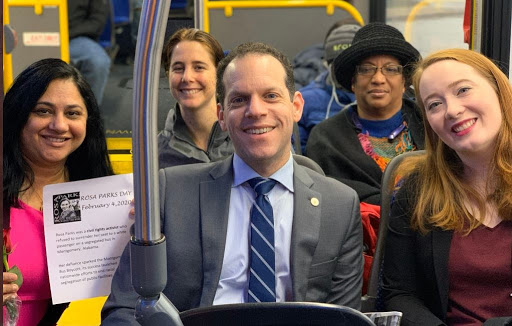
Shruti Bhatnagar with the Montgomery County Sierra Club, Kamita Gray with Brandywine BTB Coalition, Jane Lyons with Coalition for Smarter Growth, and other riders joined Councilmember Evan Glass on a bus ride from Silver Spring to Rockville to attend a Montgomery County Council meeting where the Council issued a proclamation to declare February 4 Transit Equity Day.
In Boston, the Massachusetts chapter of the Sierra Club joined a bus ride and rally organized by Alternatives for Climate and Environment and the Transit Riders Union. Transit advocates and Boston City Councilor Michelle Wu rode MBTA bus #14 during rush hour, setting aside a seat to honor Rosa Parks and speaking with riders about their transit experiences.
Mela Bush Miles (ACE) celebrating Rosa Parks’s birthday and legacy during the Transit Equity Day ride on MBTA bus #14 in Boston.
Mela Bush Miles from ACE and Councilor Michelle Wu kicked off the rally by highlighting how reduced frequency of service on MBTA bus #14 -- the bus runs every 45 minutes to every hour -- has resulted in a drop in ridership and further service cuts in a neighborhood that is dependent on the T, speaking in support of free or affordable transit fares and electrification of our public transit fleets.
“We need better public transit. We need it now. And we need it to be clean and green for future generations to be able to breathe,” said Mela Bush Miles with ACE.
In Connecticut, Transit Equity Day events were held in three cities -- Hartford, New Haven, and Norwich -- and endorsed by several organizations, including the Connecticut Roundtable on Climate and Jobs, the Amalgamated Transit Union, Transport Hartford Academy/Center for Latino Progress, 350 CT, Sierra Club Connecticut, and the South East Area Transit.
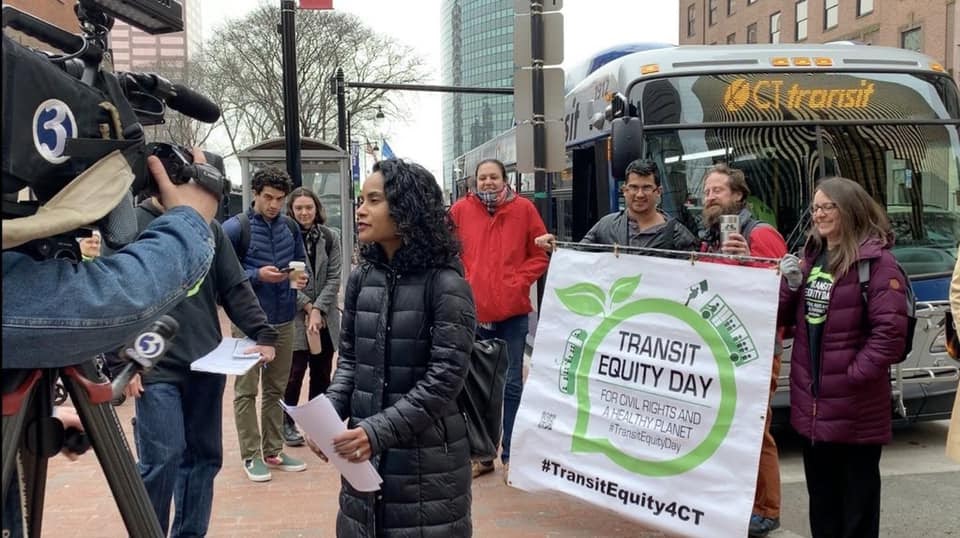
The Connecticut Chapter of the Sierra Club took part in the Hartford event, collecting signatures for increased transit funding and giving out 10-day passes donated by CT Transit before a press conference with several elected officials including the mayor and a city councilmember.
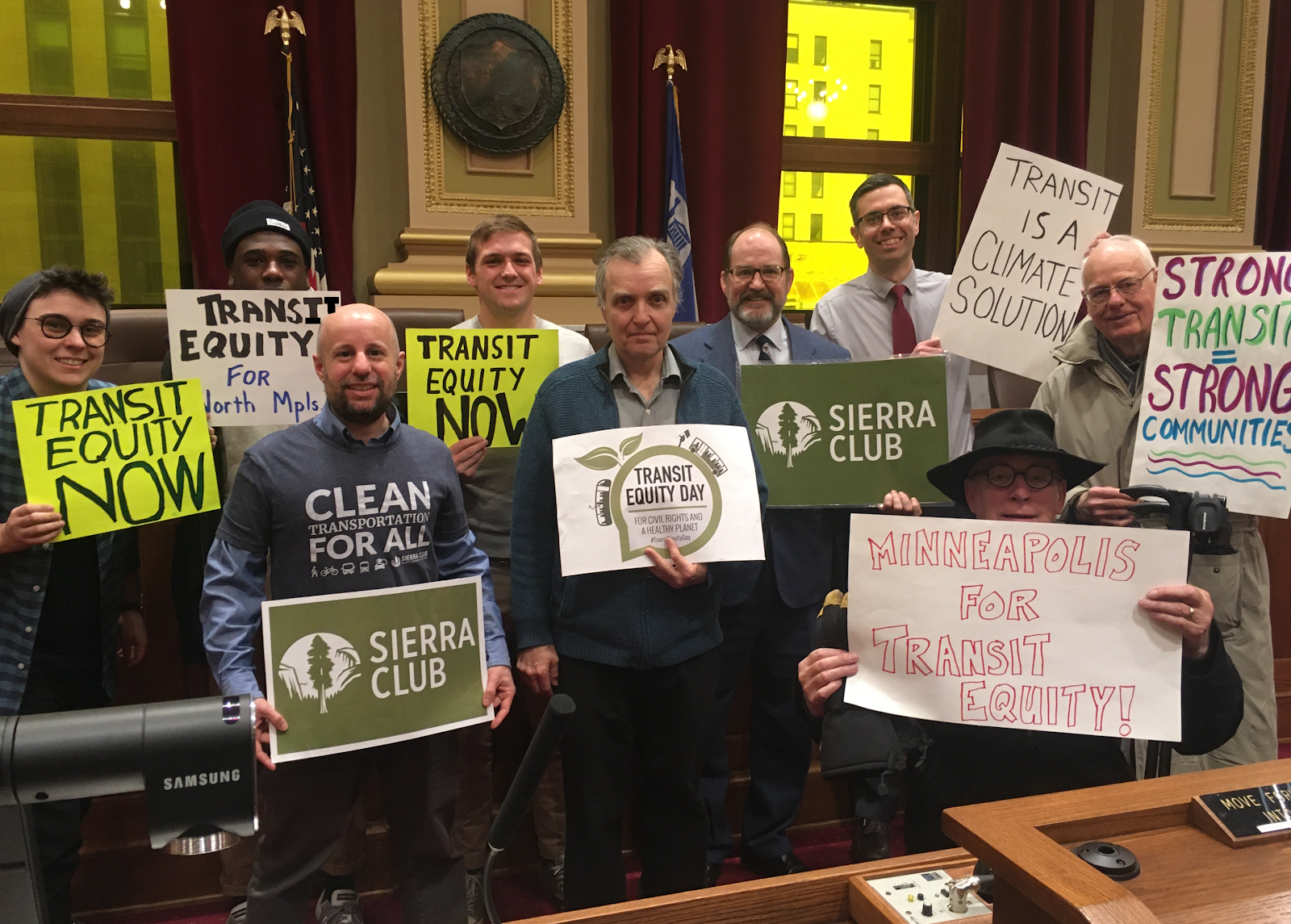
In Minnesota, the Minneapolis City Council recognized Transit Equity Day with a strong resolution pledging to improve transit access and reduce the impact of cars in underserved communities.
As an interstate highway expansion is planned through the environmental justice neighborhoods of north Minneapolis, the Sierra Club’s North Star Chapter is demanding high-quality bus rapid transit to reduce traffic and congestion for communities most impacted by toxic car and truck exhaust.
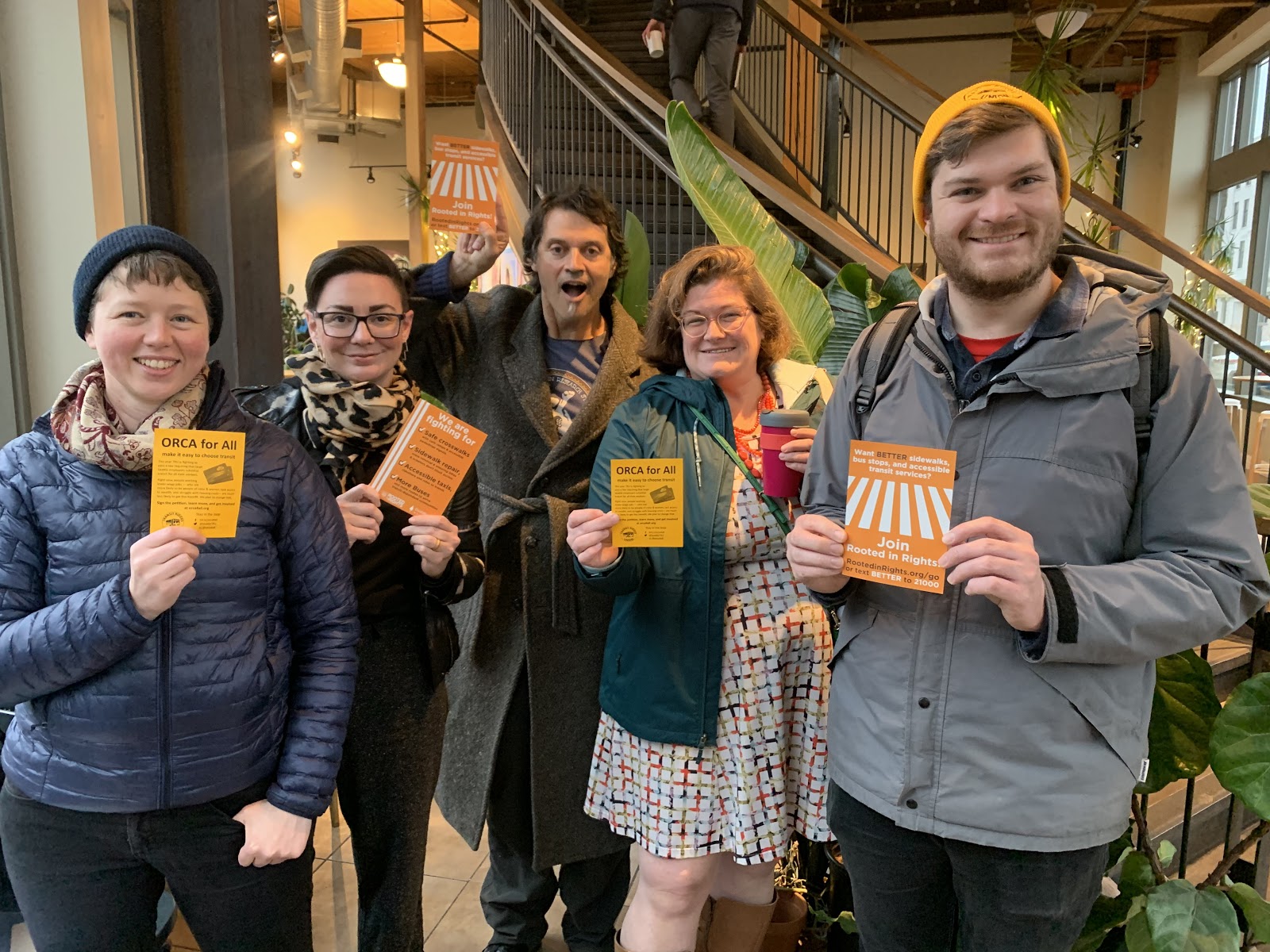
In Seattle, Sierra Club volunteers and allies from Transit Riders Union and 350 Seattle canvassed busy downtown bus stops seeking support for legislative priorities, including requiring large employers to subsidize employee transit passes, allowing camera enforcement for crosswalk and bus lane violations, and making sure sidewalks and curb ramps are safe for people of all abilities.
In Atlanta, the Georgia Chapter of the Sierra Club joined with partners like the MARTA Army, Partnership for Southern Equity, and Georgia Standup for a press conference kicking off a new bus census project intended to catalog the state of bus stop around Atlanta and to help better inform jurisdictions on bus stop access and the work needed to raise the quality of bus stop amenties.
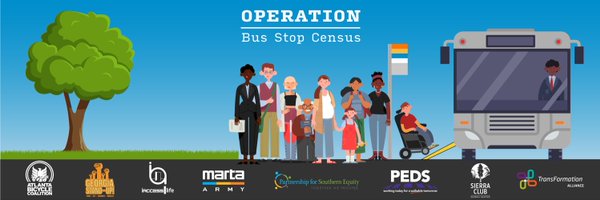
Sierra Club Georgia staffers are committed to working with community partners to reenergize the Regional Action to Improve Livability (RAIL) campaign to expand public transportation throughout the Atlanta Metro area.
"Transit Equity Day outlines what vulnerable communities demand and expect of a massive public transit system in Atlanta: to travel safely, fairly, and with human dignity," said Lornett Vestal, the Southeastern Campaign Representative with Sierra Club's Military Outdoors program.
Sierra Club staffers in Oakland, California, attended a Transit Equity Day rally full of songs and speeches and signs that read “AC Transit! Workers & Riders Roll Together.” The rally called for solidarity in the struggle for a high-quality, truly equitable public transit system that works for everybody and allows transit workers -- overwhelmingly people of color -- to afford to stay in the East Bay.
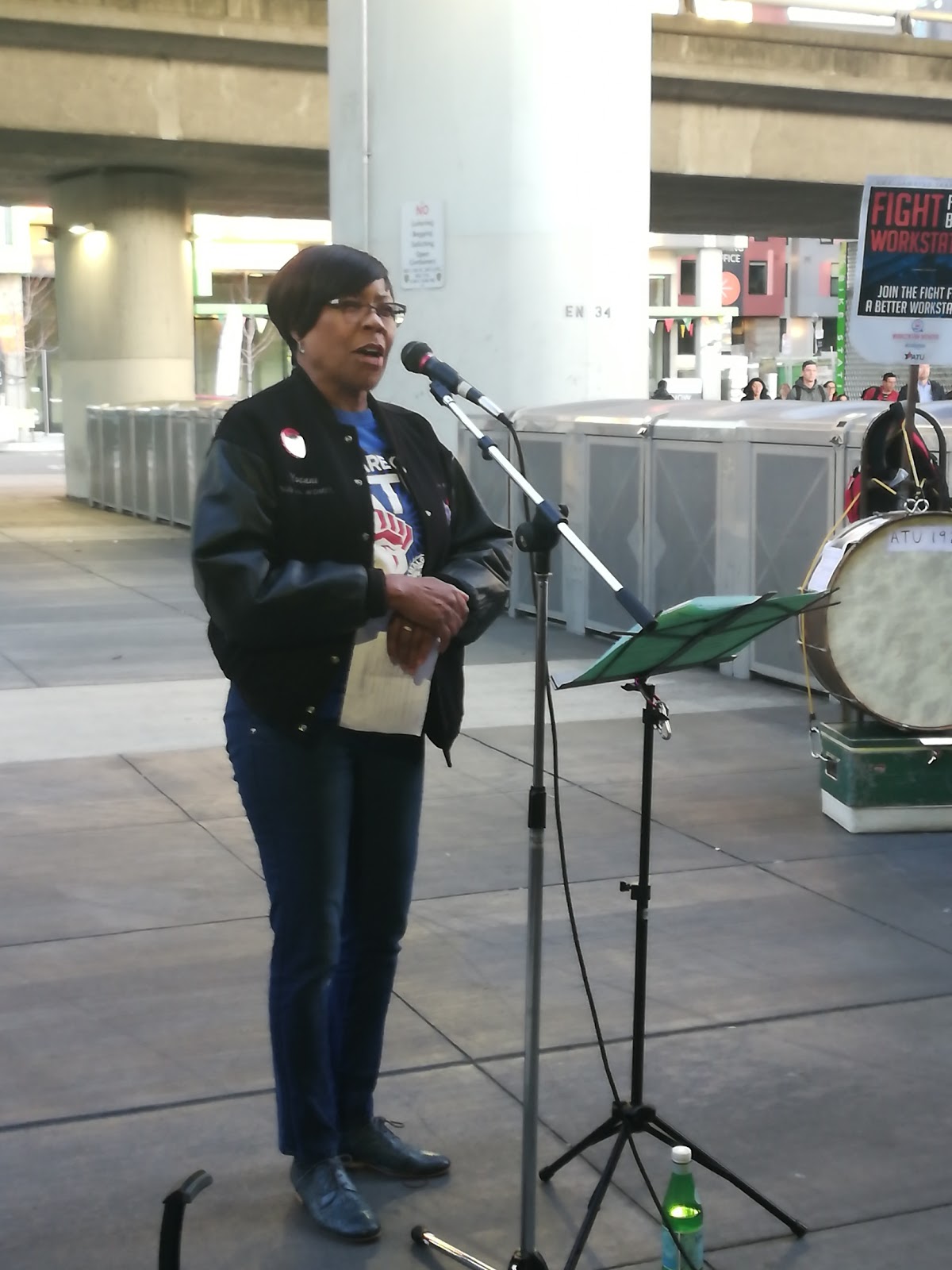
“Public transportation is as important to our community as the grocery store or the postal service … Our transit system isn’t equitable yet, but with people like us working for it, it will be soon,” said Yvonne Williams (pictured above), president of ATU Local 192, which represents AC Transit workers.
In Memphis, the Sierra Club Chickasaw Group organized a press conference to encourage local county commissioners to prioritize funding for the Memphis Area Transit Authority.
The press conference was covered by several local TV stations and brought together Shelby County Mayor Lee Harris and representatives from various groups, including the Memphis Bus Riders Union and Memphis Transit Coalition, to speak about the pivotal moment that Memphis is in to secure transit funding.
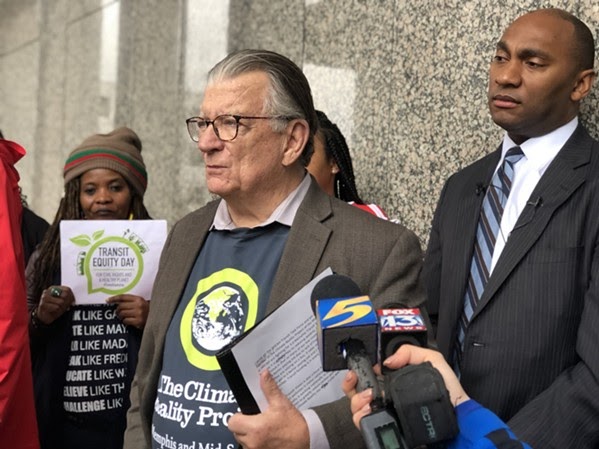
(Photo: Memphis Flyer)
“Transit equity is a plan to justly transition away from climate change. The root of climate change is pollution. People with lower incomes not only have problems accessing transit to get to work, but they also deal with the burden of pollution … We stand on the shoulders of our ancestors to move forward.”
- Marquita Bradshaw, the Environmental Justice Chair for the Sierra Club’s Chickasaw Group